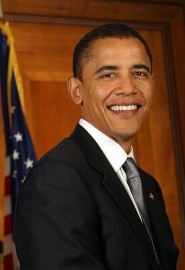
The award of the Nobel Peace Prize to Barack Obama was widely dismissed as premature, a sentiment that President Obama himself acknowledged in his acceptance speech. (Read the speech here.) Furthermore, President Obama also felt it necessary to explain why he could accept the award even while he was the commander in chief of the armed forces in an escalating war in Afghanistan.
He explained that:
“War, in one form or another, appeared with the first man. At the dawn of history, its morality was not questioned; it was simply a fact, like drought or disease — the manner in which tribes and then civilizations sought power and settled their differences.”
History was marked by attempts to regulate the use and the manner of the use of warfare, attempts whose gradual success had produced a world that was more peaceful than in the past. International institutions, the notion of the “just war” and the spread of democracy had all helped to reduce the incidence of conflict.
He argues that the continuation of this progress depends on “the continued expansion of our moral imagination” and “that spark of the divine that still stirs within each of our souls.” All this is fine, but it is insufficient.
Perhaps the Nobel Prize itself is misnamed. It does not relate to peace as Immanuel Kant understood the term. We should think of it as the Nobel Truce Prize. For peace lies not in trusting in humanity’s better nature, but in laws and institutions that constrain the worst aspects of human behaviour. Federalism does not ask people to change their instincts; instead it changes the system of government so that those instincts can be used for good and not ill.
¤ ¤ ¤
And perhaps that is what the Nobel Prize awarding committee had in mind, too.
